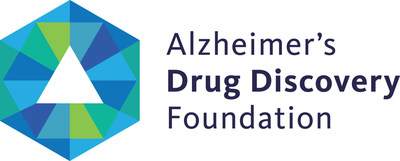|
07.12.2018 22:17:00
|
New Generation of Therapeutics Based on Understanding of Aging Biology Show Promise for Alzheimer's Disease
NEW YORK, Dec. 7, 2018 /PRNewswire/ -- A scientific strategy that explores therapeutic targets based on the biology of aging is gaining ground as an effective approach to prevent and treat Alzheimer's disease, according to research published in the December 7, 2018 online issue of Neurology®.

A comprehensive review of the clinical trial landscape, including current agents being studied for the prevention and treatment of Alzheimer's disease (and other dementias), points to the need to develop and test drugs based on an understanding of the multiple effects of aging on the brain.
"Alzheimer's is a complex disease with many different factors that contribute to its onset and progression," says Dr. Howard Fillit, founding executive director and chief science officer of the Alzheimer's Drug Discovery Foundation (ADDF), senior author of the review paper. "Decades of research have revealed common processes that are relevant to understanding why the aging brain is vulnerable to Alzheimer's disease. New therapeutics for Alzheimer's disease will come from this understanding of the effects of aging on the brain."
The only approved medications for Alzheimer's disease relieve some symptoms but do not halt disease progression. New therapies that prevent, slow, or stop the disease are urgently needed to fight the growing Alzheimer's disease burden in the United States and around the world. And, aging biology provides numerous novel targets for new drug development for Alzheimer's disease, notes Dr. Fillit.
"Our success in fighting Alzheimer's disease will likely come from combination therapy - finding drugs that have positive effects on the malfunctions that happen as people age," says Dr. Fillit. "Combination therapies are the standard of care for other major diseases of aging, such as heart disease, cancer, and hypertension, and will likely be necessary in treating Alzheimer's disease and other dementias."
Increasing age is the leading risk factor for Alzheimer's disease, a progressive neurodegenerative disease that affects 5 million people in the United States and about 50 million globally. With a growing aging population, the Centers for Disease Control and Prevention projects the burden of Alzheimer's disease will nearly triple to 14 million people by 2060.
With aging, many biological processes go awry that have also been implicated in Alzheimer's disease. For example, as people age, they are more likely to have chronic systemic inflammation and neuroinflammation, which is associated with poorer cognitive function. Other aging malfunctions include impaired clearance of toxic misfolded proteins, mitochondrial and metabolic dysfunctions (associated with diabetes), vascular problems, epigenetic changes (changes in gene regulation without alterations in the DNA sequence), and loss of synapses (points of communication between neurons).
Later-phase (phase 3) trials are dominated by drugs targeting beta-amyloid and tau, the classic pathological hallmarks of Alzheimer's disease (of phase 3 trials, 52% are targeting amyloid or tau), but other strategies are gaining ground and are in phase 1 or 2 trials, according to the review paper.
Although therapeutic attempts to remove or decrease the production of beta-amyloid have been largely unsuccessful in altering the disease course of Alzheimer's disease, says Dr. Fillit, researchers learned important information from those clinical trials even if they didn't immediately result in treatments for Alzheimer's patients. And recent clinical trials suggest that problems with clearance of beta-amyloid may yet prove fruitful.
"It is currently not known if these classic pathologies (amyloid and tau) represent valid drug targets and if these targets alone are sufficient to treat Alzheimer's disease," says Dr. Fillit. "Targeting the common biological processes of aging may be an effective approach to developing therapies to prevent or delay age-related diseases, such as Alzheimer's."
Journal article citation: "Translating the biology of aging into novel therapeutics for Alzheimer's disease," 2019;92:1-10. doi:10.1212/WNL.0000000000006745; December 7, 2018 online issue of Neurology®, the medical journal of the American Academy of Neurology. Authors: Yuko Hara, Ph.D., Nicholas McKeehan, B.S., Howard Fillit, M.D.
ABOUT THE ALZHEIMER'S DRUG DISCOVERY FOUNDATION
Founded in 1998 by Leonard A. and Ronald S. Lauder, the Alzheimer's Drug Discovery Foundation is dedicated to rapidly accelerating the discovery of drugs to prevent, treat and cure Alzheimer's disease. The ADDF is the only public charity solely focused on funding the development of drugs for Alzheimer's, employing a venture philanthropy model to support research in academia and the biotech industry. Through the generosity of its donors, the ADDF has awarded over $115 million to fund more than 585 Alzheimer's drug discovery programs and clinical trials in 18 countries. To learn more, please visit: http://www.alzdiscovery.org/.
![]() View original content to download multimedia:http://www.prnewswire.com/news-releases/new-generation-of-therapeutics-based-on-understanding-of-aging-biology-show-promise-for-alzheimers-disease-300762078.html
View original content to download multimedia:http://www.prnewswire.com/news-releases/new-generation-of-therapeutics-based-on-understanding-of-aging-biology-show-promise-for-alzheimers-disease-300762078.html
SOURCE Alzheimer's Drug Discovery Foundation
 Der finanzen.at Ratgeber für Aktien!
Der finanzen.at Ratgeber für Aktien!
Wenn Sie mehr über das Thema Aktien erfahren wollen, finden Sie in unserem Ratgeber viele interessante Artikel dazu!
Jetzt informieren!